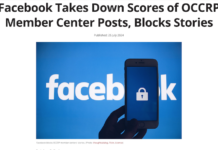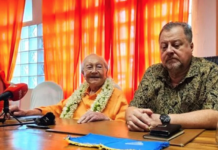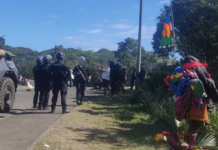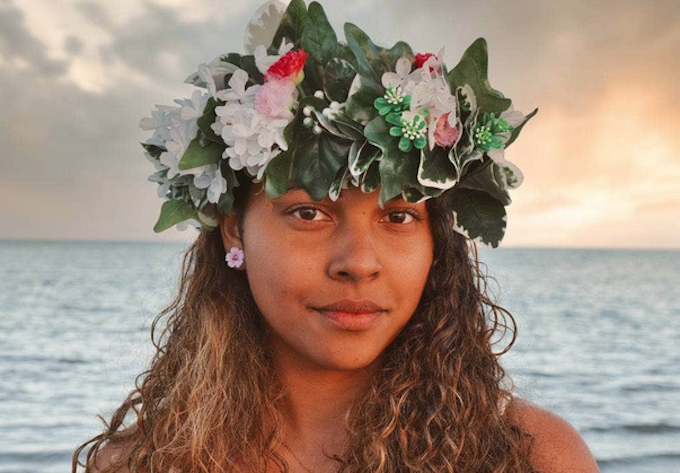
COMMENTARY: By Marylou Mahé, a Kanak supporter of independence for New Caledonia
When tomorrow’s referendum on independence for New Caledonia goes ahead, it won’t have my vote.
I am a young Kanak woman, a pro-independence and decolonial feminist who wants to stop the injustice and humiliation of my people, colonised for more than a century by France.
But this referendum is undemocratic, and should be postponed.
- READ MORE: Betrayal of Kanaky decolonisation by Paris risks return to dark days
- Independence for Kanaky: A media and political stalemate or a ‘three strikes’ Frexit challenge? — Backgrounder
- Covid, mourning and the fear of violence: New Caledonia prepares for blighted independence vote
- Other New Caledonia referendum reports
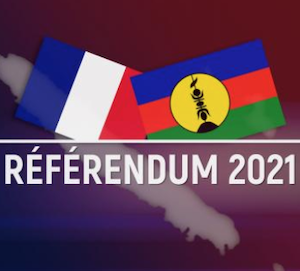
For more than 30 years, New Caledonia has undergone a unique process of decolonisation. After the Matignon (1988) and Nouméa (1998) agreements, the indigenous Kanak people and the various communities on the archipelago have worked to build a common society.
A process driven by constant dialogue, the spoken word, and recognition of the Kanak culture, which had long been ignored.
This was done under the watchful and “neutral” eye of the French state. The spoken word refers to a Melanesian way of navigating the world — it determines actions and assures the perpetuity of the collective existence of the group.
It is sacred, with a moral and spiritual commitment, and cannot be betrayed.
Three referendums on independence
The Nouméa agreements included up to three referendums, asking New Caledonians to vote on the sovereignty and independence of the islands.
The first took place in November 2018. The “No” vote, which “loyalists” had initially predicted would win by 70 per cent, ended up with only 56.7 per cent, while 43.3 per cent said “Yes” to independence.
In October 2020, the second referendum was held, in which 53.3 per cent voted “No” and 46.7 per cent voted “Yes”. There were only 10,000 votes between the two camps.
We felt that we were touching independence with our fingertips; the momentum was in our favour.
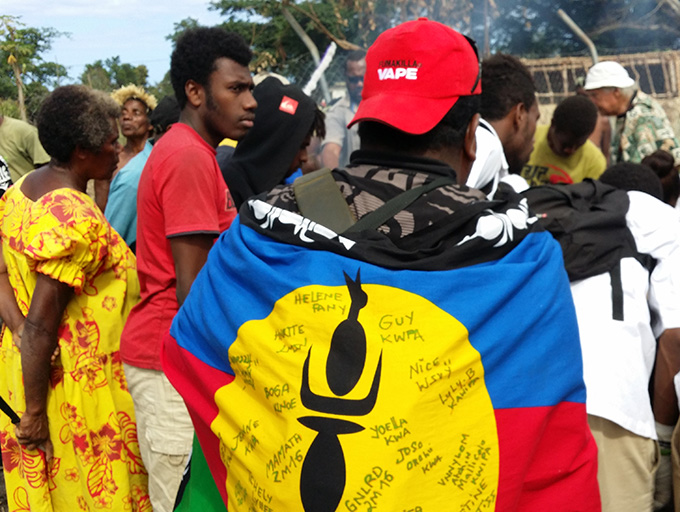
For this third and final referendum, the state initially announced that the consultation could not be held between September this year and August 2022, because of French presidential campaigns and elections taking place until April. It later contradicted itself by setting the date for December 12.
As the referendum campaign was about to begin, New Caledonia, which until then had been covid-free, recorded its first local cases on September 6.
The pandemic rapidly spread: 276 people have died since, and a light lockdown has been put in place. Despite this crisis, the state is maintaining the referendum date, and the pro-independence movement has called on its supporters not to vote.
And I wouldn’t vote. The future of New Caledonia cannot be built without its indigenous people. The Kanak voice is the cornerstone of New Caledonia’s common destiny.
Campaign conditions are not met
With covid-19 health restrictions, it is impossible to create the democratic conditions for a normal and fair election campaign. Large rallies are now impossible, and many pro-independence Kanak tribes do not have easy access to the internet.
The digital divide is real, and the idea of a “fair” online campaign is an illusion. Beyond this, the virus is likely to demobilise voters.
Time of mourning
This is a time for traditional Kanak mourning. More than 50 percent of the people who have died from the virus are Kanak. The Customary Senate, the representative body of the Kanak people, has declared a period of mourning of one year.
Yet the state has dismissed this issue. We felt this was a sign of contempt. I have the impression that my culture is being ignored, that my Kanak identity is being denied, and that we are being set back more than 30 years. To a time when our voice did not count. As if I and we didn’t exist.
Betrayal of the spoken word
The spoken word is of considerable importance in Kanak culture. Sunday’s vote will be perfectly “legal”, even if half the electorate does not participate. But what political and moral legitimacy can be given to an independence referendum without the participation of the colonised people?
The French state, with the support of local loyalists, is undermining 30 years of negotiations. It risks taking us back to the violence of the 1980s. The state’s failure to keep its word is bringing us closer to the shadows of the past.
As a young Kanak woman, my voice is often silenced, but I want to remind the world that we are here, we are standing, and we are acting for our future. The state’s spoken word may die tomorrow, but our right to recognition and self-determination never will.
Marylou Mahé is a decolonial feminist artist and student in English studies, in France. She was born in Houaïlou, in the Kanak country of Ajë-Arhö, of mixed Kanak and French descent. She is currently finishing her master’s thesis on Hawai’ian feminism. This article is published via the Pacific Cooperation Foundation as part of the Pacific Voices series and was previously published by Stuff.









